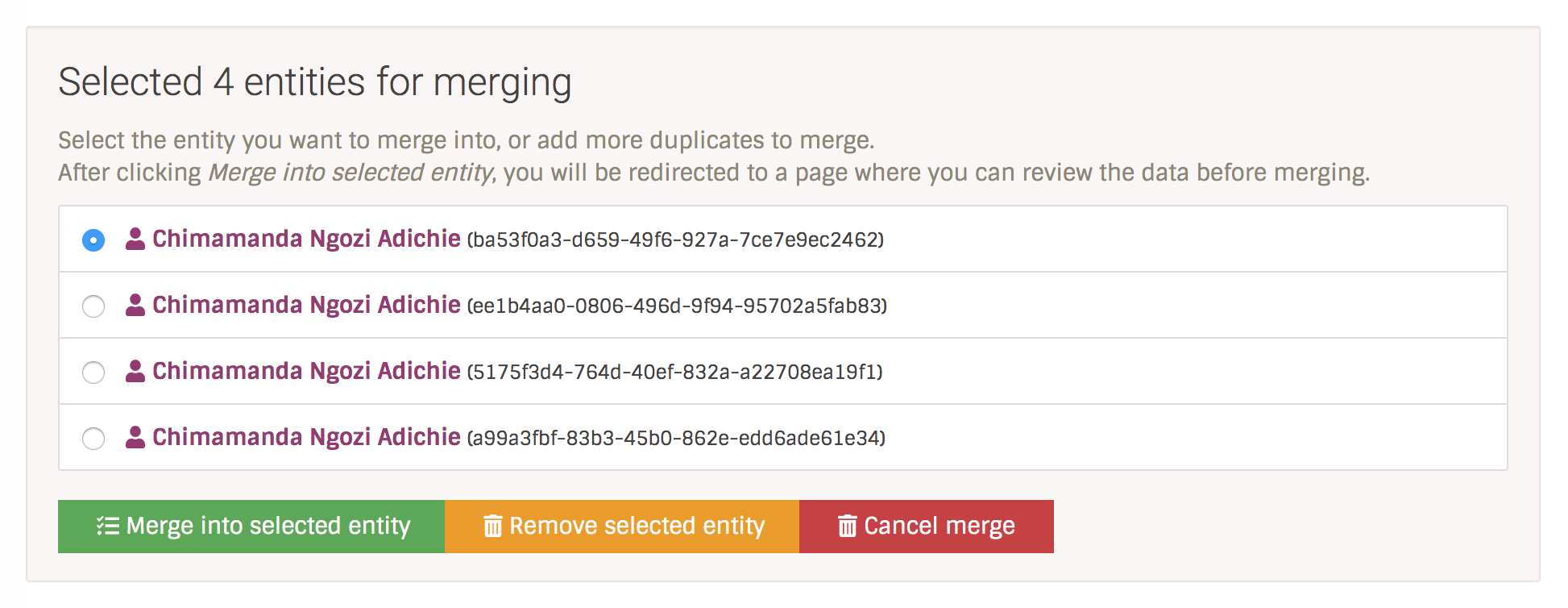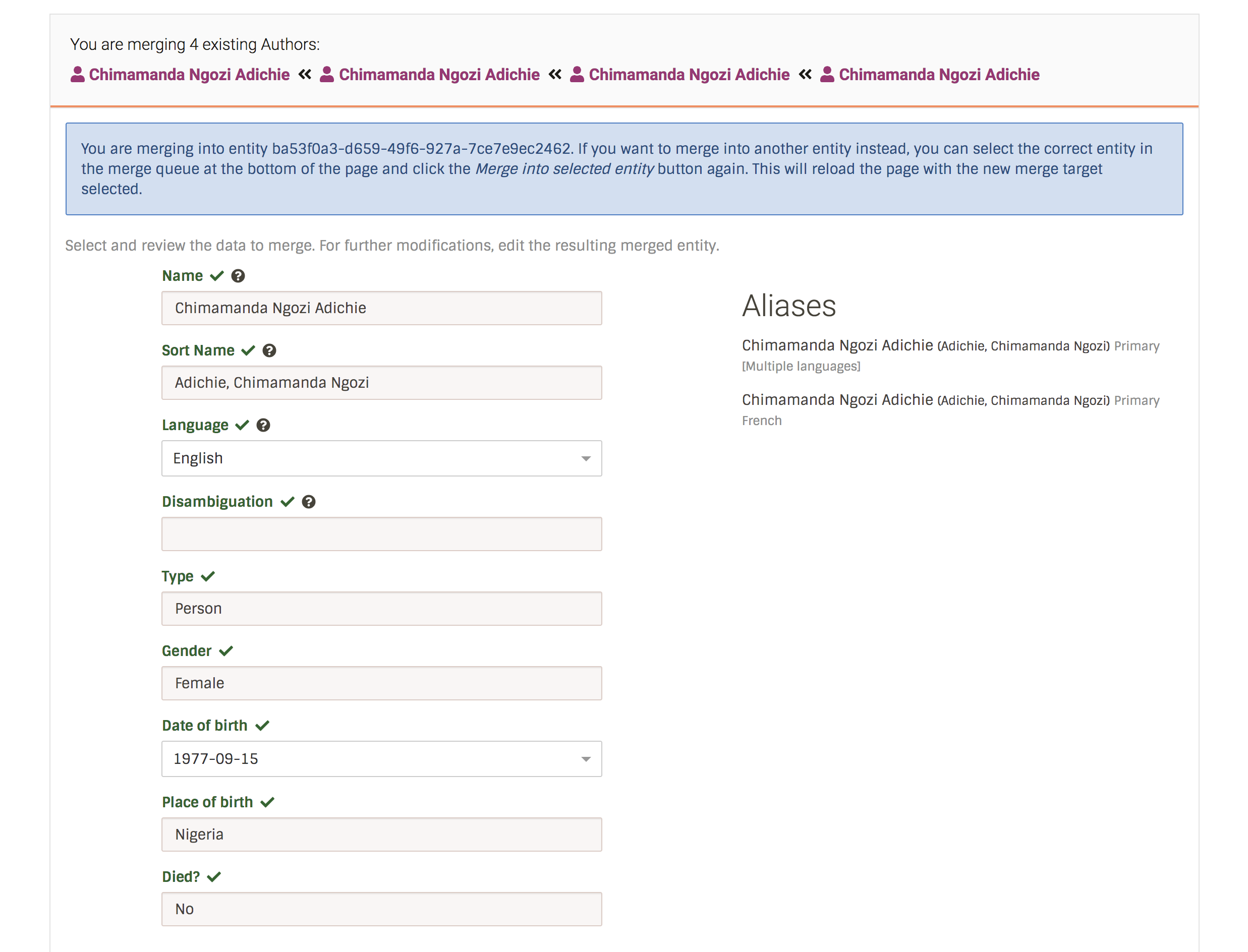The React conversion is back with this release. We’ve also fixed a regression that listed unrelated “recording of” relationship edits in history of artists, recordings, and releases, and made a lot of people quite frustrated during the last two weeks (sorry about that!). New edits won’t be wrongly listed anymore, and the existing wrongly-listed edits will be progressively unlisted during the following days. Finally, two new data reports have been created, and small display improvements have been made.
A new release of MusicBrainz Docker is also available that matches this update of MusicBrainz Server. See the release notes for update instructions.
Thanks to loujin for contributing code. Thanks to DjSlash, hibiscuskazeneko, insolite, jesus2099, and mavit for having reported bugs and suggested improvements. Thanks to Atsushi Nakamura, kellnerd and salorock for updating the translations. And thanks to all others who tested the beta version!
The git tag is v-2020-06-29.
Bug
- [MBS-10825] – Normalization of some Muziekweb links make them invalid
- [MBS-10908] – Unrelated “recording of” relationship edits for works show up in history of artists, recordings, and releases
New Feature
- [MBS-10770] – Report on relations with dates in the future
- [MBS-10895] – Report for mediums with conflicting discID
Improvement
- [MBS-10736] – Add autoselect + sidebar for Napster URLs
- [MBS-10802] – Right-align columns of Reorder Relationship table
- [MBS-10894] – Show label code after selecting label in the release editor
- [MBS-10903] – Update Operabase cleanup and validation
- [MBS-10907] – Define background color for header and footer too




